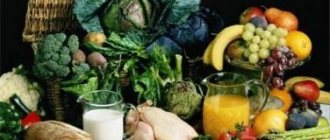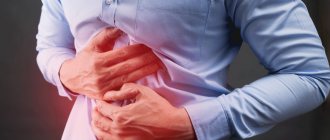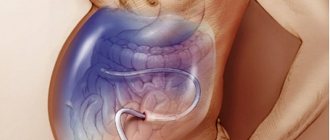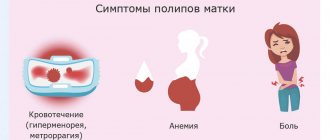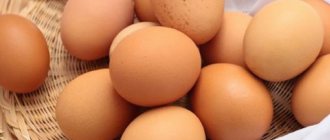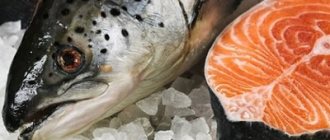Chemotherapy is a method of treating malignant cancer with drugs that have a toxic effect on the body, thereby inhibiting the growth of cancer cells. Chemistry is an effective, but quite aggressive method of treatment that negatively affects the entire body. To reduce side effects and quickly recover after treatment, patients are advised to follow a special diet.
Nutrition after chemotherapy for cancer
Chemotherapy causes side effects associated with the destruction of drugs not only on cancer cells, but also healthy cells, disruption of the gastrointestinal tract and other organs, and the removal from the body of microelements that ensure the full functionality of all organs and systems.
Tips for nutrition during chemotherapy, as well as after it:
- eating up to 6 times a day, but only in small portions;
- preference is given to easily digestible food with increased nutritional value;
- add foods that the patient prefers to the diet;
- chew food thoroughly;
- the liquid should be consumed 40–60 minutes after meals;
- hot/cold and spicy foods are undesirable;
- You should eat when you feel hungry (with moderate frequency).
A properly selected diet after chemotherapy for cancer patients helps to quickly restore the lack of minerals and vitamins, normalize the functioning of the digestive tract and other systems. The positive effect is also manifested in a decrease in the severity of the adverse reaction to the chemistry. Patients who have had an easier time with chemotherapy also have a positive psychological attitude towards the treatment of a serious illness.
Preparation
Proper preparation for surgery significantly reduces the risk of complications and shortens rehabilitation time:
- 7-10 days before the intervention, the patient is prescribed a special dietary regimen, which completely eliminates the consumption of heavy, indigestible and fermentable foods.
- A complete examination of the patient is carried out. General clinical examinations are prescribed (general and biochemical analysis of blood, urine, FLG). This is carried out to identify concomitant diseases and their timely treatment. An undiagnosed general somatic disease can complicate the operation and worsen the prognosis for the patient. If the patient is constantly taking any medications, the doctor can stop them or change the dosage if necessary.
- The gastrointestinal tract is examined in detail. Colonoscopy is performed (according to indications, a biopsy is taken from the affected areas), sigmoidoscopy. In some cases, the surgeon may prescribe a survey radiography of the abdominal cavity or irrigoscopy. Indications for these studies are determined on an individual basis.
- The day before surgery, bowel cleansing is required. Cleansing can be done in several ways: taking laxatives, cleansing enemas. A more modern method is the use of osmotic solutions (Fortrans), but these solutions are quite expensive. The choice of cleansing method depends on the doctor’s prescription and the patient’s preferences. It is important that the patient adheres to the prescribed diet for the week before surgery, as this also has a cleansing effect.
- The last meal and water intake should be 12-16 hours before surgery.
- Several hours before the start of surgery, antibacterial drugs are administered, since bacterial contamination of the intestines is very high and there is a risk of developing infectious complications in the postoperative period.
What food to choose after chemotherapy
Chemotherapy requires preparation, maintenance and recovery of the body. The diet can be recommended by your doctor at each of these stages.
Nutrition during chemotherapy for oncology is divided into three groups based on dietary characteristics.
- Before chemotherapy.
- During chemotherapy.
- After chemotherapy treatment.
The first stage of dietary nutrition may be necessary to prepare the body for the aggressive effects of anticancer drugs. The second stage involves following dietary recommendations to maintain body function and alleviate adverse reactions. After chemotherapy, special nutrition is required to eliminate the effects of treatment, restore the condition of all organs and systems, and remove toxic substances from the body.
Recommended product groups
Eating after chemotherapy involves following a healthy diet. This means choosing energy-dense and balanced foods. At the same time, special attention is paid to diversity. Experts recommend using natural products from all food categories for cooking.
Benefits of foods by food group.
- Cereals. Must be included in a balanced diet. Grains provide the body with vitamins (group B), carbohydrates and dietary fiber, which improve the functioning of the gastrointestinal tract.
- Vegetables, herbs and fruits. An integral part of the daily diet for a healthy diet, especially after chemotherapy. Products in this group contain trace elements and essential vitamins, flavonoids and antioxidants that help restore damaged cells and regenerate new ones.
- Dairy products. Lactic acid products are considered one of the main elements of complete nutrition during chemistry. They contain lacto- and bifidobacteria, which increase the body's resistance, improve the condition and functioning of the gastrointestinal tract and reduce the intoxication effect.
- Protein. Another important group of products. It includes eggs, nuts, beans, white poultry, seafood and fish. Including them in the diet will help saturate the body with microelements, protein and vitamins.
- Oils and fats. These are not classic foods that are consumed by a healthy person. This group includes products enriched with Omega 3/6 polyunsaturated acids. They have an antitumor effect, reducing the growth of cancer cells, so their use is most important. The group includes: nuts, flaxseed, flax oil, sunflower oil, olive oil and wheat germ oil, black cumin oil, fish oil, etc.
When preparing a diet after cancer chemotherapy, the specialist takes into account not only the patient’s condition after treatment, but also the need for dietary habits in case of possible concomitant diseases.
Fully or partially limited products
- Rye and bran bread, fresh bread.
- Fatty meat, fish, poultry, any canned food, smoked meats, cooking fats, refractory animal fats, sausages.
- Strong and fatty broths.
- Legumes, fresh vegetables - in limited quantities and introduced gradually.
- Strong coffee, carbonated drinks.
Table of prohibited products
| Proteins, g | Fats, g | Carbohydrates, g | Calories, kcal | |
Vegetables and greens | ||||
| vegetables legumes | 9,1 | 1,6 | 27,0 | 168 |
| swede | 1,2 | 0,1 | 7,7 | 37 |
| cucumbers | 0,8 | 0,1 | 2,8 | 15 |
| parsnip | 1,4 | 0,5 | 9,2 | 47 |
| parsley (root) | 1,5 | 0,6 | 10,1 | 49 |
| radish | 1,2 | 0,1 | 3,4 | 19 |
| white radish | 1,4 | 0,0 | 4,1 | 21 |
| turnip | 1,5 | 0,1 | 6,2 | 30 |
| celery | 0,9 | 0,1 | 2,1 | 12 |
| horseradish | 3,2 | 0,4 | 10,5 | 56 |
| garlic | 6,5 | 0,5 | 29,9 | 143 |
| spinach | 2,9 | 0,3 | 2,0 | 22 |
| sorrel | 1,5 | 0,3 | 2,9 | 19 |
Fruits | ||||
| bananas | 1,5 | 0,2 | 21,8 | 95 |
| melon | 0,6 | 0,3 | 7,4 | 33 |
Berries | ||||
| grape | 0,6 | 0,2 | 16,8 | 65 |
Mushrooms | ||||
| mushrooms | 3,5 | 2,0 | 2,5 | 30 |
Nuts and dried fruits | ||||
| dried fruits | 2,3 | 0,6 | 68,2 | 286 |
Cereals and porridges | ||||
| pearl barley | 9,3 | 1,1 | 73,7 | 320 |
| millet cereal | 11,5 | 3,3 | 69,3 | 348 |
Flour and pasta | ||||
| pasta | 10,4 | 1,1 | 69,7 | 337 |
Bakery products | ||||
| vysivkovy bread | 9,0 | 2,2 | 36,0 | 217 |
| Old Russian grain bread | 9,6 | 2,7 | 47,1 | 252 |
| Rye bread | 6,6 | 1,2 | 34,2 | 165 |
Confectionery | ||||
| candies | 4,3 | 19,8 | 67,5 | 453 |
| cookie | 7,5 | 11,8 | 74,9 | 417 |
| Kurabye cookies | 6,7 | 25,8 | 64,6 | 516 |
| butter cookies | 10,4 | 5,2 | 76,8 | 458 |
Ice cream | ||||
| ice cream | 3,7 | 6,9 | 22,1 | 189 |
Cakes | ||||
| cake | 4,4 | 23,4 | 45,2 | 407 |
Raw materials and seasonings | ||||
| seasonings | 7,0 | 1,9 | 26,0 | 149 |
| mustard | 5,7 | 6,4 | 22,0 | 162 |
Meat products | ||||
| pork | 16,0 | 21,6 | 0,0 | 259 |
Sausages | ||||
| dry-cured sausage | 24,1 | 38,3 | 1,0 | 455 |
Bird | ||||
| duck | 16,5 | 61,2 | 0,0 | 346 |
| goose | 16,1 | 33,3 | 0,0 | 364 |
Fish and seafood | ||||
| dried fish | 17,5 | 4,6 | 0,0 | 139 |
| smoked fish | 26,8 | 9,9 | 0,0 | 196 |
| canned fish | 17,5 | 2,0 | 0,0 | 88 |
Oils and fats | ||||
| vegetable oil | 0,0 | 99,0 | 0,0 | 899 |
| animal fat | 0,0 | 99,7 | 0,0 | 897 |
| cooking fat | 0,0 | 99,7 | 0,0 | 897 |
Non-alcoholic drinks | ||||
| bread kvass | 0,2 | 0,0 | 5,2 | 27 |
Juices and compotes | ||||
| apricot juice | 0,9 | 0,1 | 9,0 | 38 |
| grape juice | 0,3 | 0,0 | 14,0 | 54 |
| plum juice | 0,8 | 0,0 | 9,6 | 39 |
| * data is per 100 g of product | ||||
Is it possible to eat before chemotherapy?
To make it easier for the body to tolerate chemotherapy, it is necessary to prepare the body for the load. In addition to treating existing diseases (if possible), taking prescribed medications and other measures that are indicated by the doctor as the most important, diet should be adjusted.
Diet features are determined individually. In most cases, oncologists advise eliminating “heavy” foods, alcohol and a number of harmful foods 1–2 weeks before chemotherapy. Also, to improve all clinical indicators, it is recommended to eat foods containing large amounts of microelements and vitamins.
A pressing question for cancer patients is whether to eat before chemotherapy or not? On the day of the procedure, you need to have breakfast, but not too much and the food should be easily digestible. The day before chemotherapy and on the day it is performed, it is advisable to take a large amount of water.
Nutrition during chemotherapy treatment
It is most important to support the body during chemotherapy. During this period, the patient may completely refuse to eat due to lack of appetite, stomach pain, intestinal dysfunction, deterioration of general condition and other side effects. A properly selected diet will help restore strength, normalize the gastrointestinal tract, alleviate the psycho-emotional state and reduce the severity of the adverse reaction.
Recommended products during chemotherapy:
- poultry, eggs, seafood, legumes, fish;
- flour products, cereal porridges;
- cheese, kefir, butter and cottage cheese;
- berries, herbs, fruits and vegetables;
- honey, sweeteners.
The presence of concomitant diseases that may have restrictions on the consumption of any products should be taken into account.
It is not advisable to use during chemistry:
- fast foods and semi-finished products;
- smoked meats;
- marinades;
- hot and highly spicy dishes;
- grilled meat;
- canned food
To increase appetite, it is recommended to eat: parsley, ginger, dill or cumin. The food consumed should be of a soft consistency to avoid injury to the stomach, the formation of fermentation and stagnation in the stomach.
Nutrition after chemotherapy for cancer patients
Upon completion of all chemotherapy cycles, the initial diet remains the same as during treatment. Until complete recovery, it is not advisable to return to the diet that was before chemotherapy.
Oncologists advise be sure to consume foods containing Omega fats. Consume small doses of flax oil, wheat germ seeds, black cumin oil or other natural products daily to help quickly remove toxins from the body.
The recommended volume of fluid intake remains the same - at least 2 liters per day. This includes purified water, black tea, natural juices, fruit drinks, etc.
Whether to take artificial vitamin-mineral complexes and dietary supplements is decided solely by the attending physician. With adequate nutrition, a positive prognosis and stability of the patient’s condition, this is not necessary.
Classification
Depending on the extent of the process, there are 4 stages of sigmoid colon cancer. Staging, which takes into account the size of the tumor, the degree of invasion into surrounding tissues and the presence of metastases, is necessary to prescribe the optimal treatment tactics.
| Stage | Tumor size | Description |
| I | no more than 2 cm | the process is localized within the mucous layer, there are no metastases |
| II A | does not exceed ½ intestinal circumference | the process does not extend beyond the boundaries of the intestinal wall, no metastases were detected |
| II B | cancer does not extend beyond the intestinal wall, metastases in lymph nodes, no distant ones | |
| III A | more than ½ intestinal circumference | the tumor spreads beyond the intestinal wall, there are no metastases |
| III B | metastases are detected | |
| IV A | occupies the entire lumen of the intestine | damage to distant lymph nodes |
| IV B | metastases have spread to distant organs, conglomerates have appeared |
The influence of proper nutrition during treatment
Chemotherapy has an aggressive effect on the body and provokes disruption of the internal organs. Patients tolerate treatment differently, but about 98% have gastrointestinal problems. Toxic elements of chemotherapy drugs lead to decreased appetite, constant nausea and vomiting, stomach pain and other disorders that make the patient want to refuse food. As a result, the already weakened body does not receive enough necessary beneficial elements, which aggravates its general condition.
Benefits of a proper diet during chemotherapy:
- maintaining appetite;
- elimination of frequent attacks of nausea;
- intake of microelements and vitamins into the body;
- strengthening the immune system;
- increasing the overall resistance of the body;
- normalization of intestinal and stomach function;
- maintaining a positive psycho-emotional mood.
The main advantage of proper nutrition during chemotherapy is that it makes it easier to endure treatment, reduce the severity of adverse reactions and more quickly recover after the end of chemotherapy.
Chemotherapy treatment at Yusupov Hospital
Without chemotherapy, oncology treatment is possible only at an early stage and with a favorable prognosis. In other cases, chemotherapy is one of the main methods of destroying cancer cells.
At the Yusupov Hospital, cancer treatment is carried out by oncologists-chemotherapists of the highest category with many years of experience. The clinic provides conservative and surgical treatment of cancer, chemotherapy, targeted therapy, immunotherapy and other methods of fighting cancer.
Doctors at the Yusupov Hospital support patients throughout their treatment. The clinic provides rehabilitation of cancer patients, palliative and symptomatic treatment of oncology. Patients undergoing treatment in a hospital receive balanced meals four times a day (the service is included in the price).
More information about chemotherapy and other cancer treatments as a service can be found on this page.
Prospective outcome of colon adenocarcinoma
If the disease is detected in time, it is very easy to cure.
The result directly depends on the stage at which the disease was detected and how the treatment process went. The presence or absence of metastases, as well as the extent of the lesion, also plays an important role.
Provided that the patient has undergone the intervention, the next five years after the intervention can be decisive. The disease may return, but if this milestone has been passed, this indicates a favorable prognosis for the future.
With radical ectomy of the affected part of the large intestine, which involves removing a large portion of it, the survival rate reaches 90%.
However, the more serious the stage and the greater the prevalence of the disease, the less chance of getting rid of the dangerous disease. In this case, even after surgical removal of the tumor, the patient, as a rule, rarely lives more than 5 years.
If a malignant tumor has metastasized to the lymph nodes, then, as a rule, about half of the patients survive.

